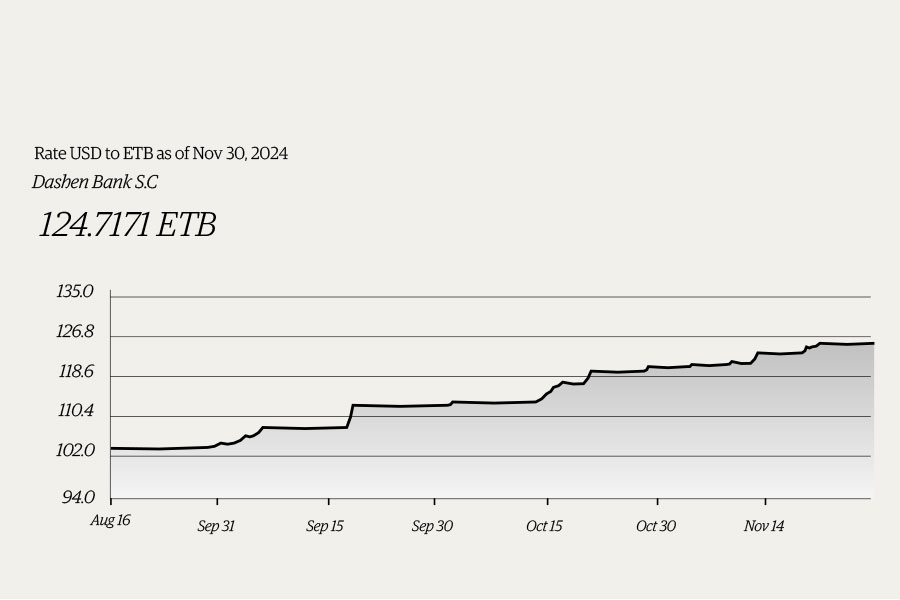
Commentaries | Aug 06,2022
Jan 27 , 2024
By Jim O’Neill
December's inflation figures in the eurozone, UK, and US have unexpectedly surged, challenging the cautiously optimistic economic outlook for 2024. After a period of markets betting on significant interest rate cuts, this development has sent policymakers, investors, and analysts back to the drawing board, writes Jim O'Neill, a former UK treasury minister and member of the Pan-European Commission on Health & Sustainable Development, in this commentary provided by Project Syndicate (PS).
Last month, I wrote about the central role of inflation trends in the outlook for the world economy in 2024 and beyond. Of course, there are many additional risks, which is why the forecasting community is hedging its projections with sensible caveats about various "known unknowns." Chief among these are the ongoing conflicts in the Middle East and Ukraine, the uncertainty about China, and looming elections in Europe, the United States (US), and elsewhere.
I offered a cautiously optimistic outlook on inflation based on recent reports showing that many underlying indicators appeared to be moving in a promising direction. Since then, however, the latest monthly inflation data (for December) in the eurozone, the United Kingdom (UK) and the US have surprised on the upside. After weeks of markets pricing in large interest-rate cuts this year, that has given pause to many policymakers, investors, and analysts.
I concluded by mentioning that it would be a pleasant surprise if wage gains in many countries persisted, despite the improving inflation outlook, without contributing to a fresh, more sustained rise in prices. Of course, most economists and central bankers would put little store in this scenario unless there was clear evidence of a much-needed uptick in productivity across the Western world (and beyond). Without additional productivity, they would warn, real (inflation-adjusted) wage gains cannot be sustained without becoming inflationary.
Nonetheless, I find myself holding on to the same hope I had last month. After all, productivity data arrive with a lag; it would be quite risky for central bankers to react too strongly to continued wage gains, such as by declaring that they will maintain a more restrictive monetary policy than they otherwise would have done.
Specifically, there are three good reasons to adopt a wait-and-see posture.
Although forecasters failed to anticipate the persistent weakness in productivity over the past two decades, it is only recently that they seem to have given up, signalling an expectation that it will start to recover. There are also obvious reasons for thinking that productivity will eventually improve, even if most have given up hope. Just look at the big developments in artificial intelligence, the shift to alternative energies, the change in working patterns since the pandemic's start, and policymakers' renewed focus on initiatives explicitly designed to boost productivity.
True, the data have yet to show that these developments are bearing fruit; but, again, the gains from new technologies often take time to work their way through the economy – and into official statistics.
Lastly, the reason to hold off on monetary tightening concerns the social and human aspects of the wages and productivity issue. As we know from debates about the sources of growing anxiety and economic insecurity across many democracies, median real wages have performed poorly in recent decades. This trend has played a big role in the public's growing disillusionment with "capitalism" and "globalisation," and the rising support for more radical and populist political parties and movements. It follows that an increase in real wages would help to moderate political attitudes. Repressing wages simply because of a belief that they are unjustified would be dangerous.
Will the improvement in inflation be sustained?
Though the December inflation figures were higher than expected, the preceding months had shown sharper-than-expected declines. If one examines the smoother underlying measures of trend inflation, as well as surveys of inflation expectations, the outlook remains quite promising.
As for the other cyclical factors, three things stand out to me as we approach the end of January.
Chinese economic data and financial market performance remain generally disappointing despite more vigorous efforts by the authorities to support a robust recovery.
In the US, most (though not all) economic indicators continue to come in stronger than expected. That is a relief, even if it does not alleviate the uncertainty among many commentators who worry that the recent positive trends may not be sustainable. Markets, too, have had a jittery start to the year. According to the five-day rule (whereby a net gain for the S&P 500 in the first five trading days of January bodes well for the next 12 months), there is only a 50pc chance that this will be a positive year for stocks. Yes, this is far from a scientific truth. But, as I have noted previously, a positive start has predicted a positive year more than 85pc of the time, going back decades.
Lastly, despite the worrying issues in the Middle East and Ukraine, commodity-price volatility has remained remarkably subdued. Perhaps some odd technical supply-demand factors account for this. But whatever the case, the relative stability is discernible across many markets. Most key commodities, as well as the recognised major commodity indices, are down compared to a year ago. That, too, is slightly reassuring.
PUBLISHED ON
Jan 27,2024 [ VOL
24 , NO
1239]


Commentaries | Aug 06,2022

Viewpoints | Nov 29,2020

Viewpoints | Jun 18,2022

Money Market Watch | Dec 01,2024

Viewpoints | Mar 23,2024

Commentaries | Oct 07,2023

Viewpoints | Oct 20,2024

Viewpoints | Feb 03,2024

Radar | Jul 13,2020

Viewpoints | Nov 09,2024

Photo Gallery | 176220 Views | May 06,2019

Photo Gallery | 166435 Views | Apr 26,2019

Photo Gallery | 156906 Views | Oct 06,2021

My Opinion | 136888 Views | Aug 14,2021

Dec 22 , 2024 . By TIZITA SHEWAFERAW
Charged with transforming colossal state-owned enterprises into modern and competitiv...

Aug 18 , 2024 . By AKSAH ITALO
Although predictable Yonas Zerihun's job in the ride-hailing service is not immune to...

Jul 28 , 2024 . By TIZITA SHEWAFERAW
Unhabitual, perhaps too many, Samuel Gebreyohannes, 38, used to occasionally enjoy a couple of beers at breakfast. However, he recently swit...

Jul 13 , 2024 . By AKSAH ITALO
Investors who rely on tractors, trucks, and field vehicles for commuting, transporting commodities, and f...

Oct 18 , 2025
The political establishment, notably the ruling party and its top brass, has become p...

Oct 11 , 2025
Ladislas Farago, a roving Associated Press (AP) correspondent, arrived in Ethiopia in...

Oct 4 , 2025
Eyob Tekalegn (PhD) had been in the Governor's chair for only weeks when, on Septembe...

Sep 27 , 2025
Four years into an experiment with “shock therapy” in education, the national moo...

Oct 18 , 2025 . By NAHOM AYELE
In a sweeping reform that upends nearly a decade of uniform health insurance contribu...

A bill that could transform the nutritional state sits in a limbo, even as the countr...

Oct 18 , 2025 . By SURAFEL MULUGETA
A long-planned directive to curb carbon emissions from fossil-fuel-powered vehicles h...

Oct 18 , 2025 . By BEZAWIT HULUAGER
Transaction advisors working with companies that hold over a quarter of a billion Bir...